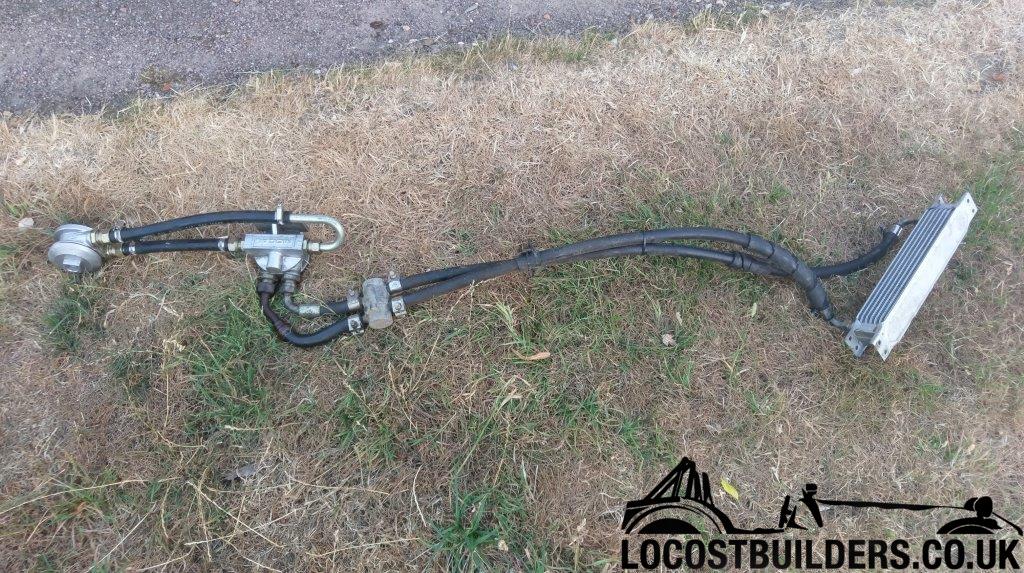Thanks

[Edited on 24/7/18 by will121]

Due to clearance issues I need to fit a remote oil filter, is there any impact on engine oil flow or pressure on running a remote filter, thermostat
and an oil cooler as setup in photo? Oil pipes to the oil cooler will be shorter on install.
Thanks

[Edited on 24/7/18 by will121]
there is a school of thought, that says having a thermostat in the oil cooler, will dump cold oil into the engine just as it gets hot. which may not be a good thing
I'm confused with this picture. You have ( from left to right) a oil take off plate, a oil distribution block, a thermostat and the rad.
Why the distribution block? Or is it not that!
For info, I have a combined thermostatic and oil take off plate that runs straight to my rad. I saw no drop in pressure and had run fine when being
spanked.
quote:
Originally posted by bi22le
Why the distribution block? Or is it not that!
quote:
Originally posted by bi22le
I'm confused with this picture. You have ( from left to right) a oil take off plate, a oil distribution block, a thermostat and the rad.
Why the distribution block? Or is it not that!
For info, I have a combined thermostatic and oil take off plate that runs straight to my rad. I saw no drop in pressure and had run fine when being spanked.
My Peugeot 205 1.9 GTI has a factory fitted oil cooler, but the oil filter itself is mounted directly on the engine block. Whilst I've never
tracked the car there've never been any issues with it on the road in relation to oil temperature or pressure.
One factor I think many people don't allow for is the amount of engine running time it takes for the engine oil to warm up. The 205 has engine
oil temperature and pressure gauges so the driver can actually see this process.
To qualify the above I've also had cars, including 2x 205 1.6 GTIs, without oil coolers. The 1.6 GTIs also took a fair time for the engine oil
temperature to rise and settle.
[Edited on 25/7/18 by nick205]
[Edited on 25/7/18 by nick205]
quote:
Originally posted by gremlin1234
there is a school of thought, that says having a thermostat in the oil cooler, will dump cold oil into the engine just as it gets hot. which may not be a good thing
quote:
Originally posted by gremlin1234
there is a school of thought, that says having a thermostat in the oil cooler, will dump cold oil into the engine just as it gets hot. which may not be a good thing
I have a thermostat and cooler on my car (the stat is attached to the block rather than remote but don't see why the exact location of the stat
would make too much difference). It makes about 20 psi per 1k rpm when hot no problems (up to ~60 psi where the pressure relief valve kicks in).
The only thing I noticed was when I first filled the system, when it got hot enough to open the stat, I saw a momentary pressure drop as some air came
out of the oil cooler, so make sure you warm it up on the drive the first time.